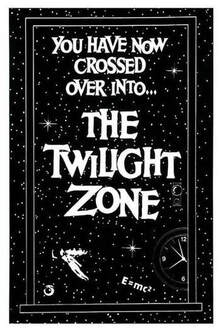
In March 2021, I wrote a piece on an episode of Rod Serling’s classic television series, The Twilight Zone – which I had recently discovered and fallen in love with. Over a year later, I remain obsessed with the series, having bought the complete collection on Blu-ray and even picked up Dann Michalski’s book God in The Twilight Zone: Spiritual Lessons from the Fifth Dimension to accompany me on my various forays into the depths of the unknown... And each trip has been better than the last – I’ve found more faith connections than I initially thought possible and have also been thrilled by the show’s mix of fantasy and Sci-Fi. Now, if I may, I’d like to highlight one other episode for you, dear readers: The Night of the Meek, which debuted on December 23rd, 1960. Yes, a Twilight Zone Christmas special! But not quite one for all the family, perhaps…
This yuletide episode begins cheerily enough – amid the hustle and bustle of a department store on Christmas Eve, children are eagerly queuing to visit Santa Claus, desperate to unload their long lists of gift requests upon him, in the hope that their dreams will come true upon Christmas morning. However, Ol' Saint Nick (Art Carney) is nowhere to be seen and the children are growing increasingly impatient. Unbeknownst to them, Santa is being portrayed by a man named Henry Corwin, who’s currently holed up at the local bar, drinking himself into oblivion. He even unsuccessfully attempts to steal a bottle of alcohol from the bar’s owner; one might say he’s the original ‘Bad Santa’. By some miracle he returns to the local department store and resumes his post, only to collapse and embarrass himself. He’s subsequently fired on the spot by his mean, irate manager Mr. Dundee (John Fielder). But somehow, after receiving a barrage of abusive comments from shop patrons and his manager, Corwin stands tall before everyone, and delivers a rousing speech about what Christmas means to him:
“…Christmas is more than barging up and down department store aisles and pushing people out of the way… Christmas is another thing, finer than that. Richer, finer, truer, and it should come with patience and love, charity, compassion… I'm an aging, purposeless relic of another time, and I live in a dirty rooming house on a street filled with hungry kids and shabby people, where the only thing that comes down the chimney on Christmas Eve is more poverty.”
“Do you know another reason why I drink, Mr. Dundee? So when I walk down the tenements I can really think it's the North Pole and the children are elves and that I'm really Santa Claus, bringing them a bag of wondrous gifts for all of them. I just wish, Mr. Dundee, on one Christmas, only one! That I could see some of the hopeless ones and the dreamless ones, just on one Christmas, I'd like to see the meek inherit the earth. And that's why I drink, Mr. Dundee. And that's why I weep.”
Corwin, desperate and dejected, then attempts to return to the local bar, seeking to dull the pain of watching those around him live in great poverty. But when he’s refused re-entry into the bar, Corwin staggers aimlessly into a nearby alley, whereupon he hears sleigh bells passing overhead. Confused and bewildered, he turns around to find that a sack of rubbish he initially kicked aside, is now overflowing with sparkling, individually wrapped gifts. Not only that, but he soon comes to realise that the sack itself is able to produce any item that someone asks of it. His wish has been granted! Corwin can now ensure that this Christmas, the meek (from within his town at least) will inherit great gifts of joy and hope.
Such a fantastical premise might draw comparisons to Frank Capra’s socially conscious & beloved It’s a Wonderful Life, especially with its wholesome and heart-warming message. But here we see an average Joe become the real Santa Claus - first by inhabiting the ability to dispense copious amounts of amazing presents to those around him, and then eventually ride off into the night on his sleigh, pulled along by flying reindeer. All of this is magical, aided in part by a stripped-down, glockenspiel-heavy arrangement of The First Noel. But the episode is also centred upon real-world concerns. Those whom Corwin blesses with gifts are the meek, of whom he refers to near the beginning of the episode. They aren’t the rich & powerful of society, but those who lack necessities, such as gainful employment or clothes upon their backs. These are humble people who choose to patiently endure hardship, showing both self-restraint and gentleness, rather than strength in anger. They’re also those whom Jesus spoke of in Matthew 5, throughout His Sermon on the Mount: “Blessed are the meek, for they will inherit the earth” (5:5, NIV).
However, God’s concept of blessedness is different to writer Rod Serling’s. For if we look to the Greek word “makários”, which is translated as “blessed”, it can also be understood to mean “happy”, too. This indicates that those who are meek will be joyful and contented, but such an understanding must derive from a godly context. For a state of happiness understood within a worldly context is but momentary, and typically relates to one’s state of comfortability, most often brought about by possessions or status. Such worldly happiness is never guaranteed, nor is it permanent: “Money is put into risky investments that turn sour, and everything is lost. In the end, there is nothing left to pass on to one’s children. We all come to the end of our lives as naked and empty-handed as on the day we were born. We can’t take our riches with us” (Ecclesiastes 5:14-15, NLT). However, godly blessedness is something else entirely. According to William Barclay, it is “…joy which is completely independent of all the chances and the changes of life… The Christian blessedness is completely untouchable and unassailable”. For when we come to know Jesus Christ personally, our sorrow is turned into great joy! We receive the gift of salvation and are “raised to new life with Christ” (Colossians 3:1, NLT), experiencing a great many blessings such as God’s presence with us in the everyday (the Holy Spirit). But it also means that we can set our “sights on the realities of Heaven” (3:1), such as the promises that death, sorrow, and pain will one day cease to exist (Revelation 20:14, 21:4). Such are the many gifts that God so readily wishes to give to us, and this is only made possible by Jesus’ death on the cross, which paid the price for our sin (1 John 2:2).
Though Corwin is unable to bring the gift of great joy (in the Christian sense of the word), his actions commendably mirror those of Christ. Upon leaving the local precinct following a misunderstanding with the police (how can one account for such an abundance of gifts?), Corwin continues to distribute gifts to his neighbours for the remainder of the evening until the bag is inexplicably empty. He gives of himself completely, until there’s nothing left in the sack – taking nothing for himself, not one thing. An elderly resident named Burt, who previously received a new smoking pipe from Corwin, soon recognises this and questions whether he should have just a little something for himself. But all Corwin wants to do, he says, is give, not receive. We see this in Corwin’s visit to the Delancey Street Mission House, as he excitedly hands out gifts to derelict men attending the Christmas Eve service. Sister Florence is irritated by the disruption, leading her to call the police. It seems that she’s more interested in the number of those attending her service, than taking notice of the signs hanging behind her, which read: “Faith, Hope and Charity”, and “Love Thy Neighbour”…
But just as Corwin is undeterred in his mission to become the biggest gift giver of all time, Christ was undeterred in His own mission to show the world that He is the very best gift one can receive, sent by the greatest gift giver of all time: God the Father. We know this, for the Scriptures say: “…this is how God loved the world: He gave His one and only Son, so that everyone who believes in Him will not perish but have eternal life. God sent His Son into the world not to judge the world, but to save the world through Him” (John 3:16-17, NLT). Yes, Jesus gave something that Corwin, or anyone else for that matter, could never give. He gave His sinless life on a Roman cross so that we sinful people (Romans 3:23) who are bound to be separated from God in Hell for eternity, might live in freedom from the chains of our sin by accepting the free gift of God, which is life forever, through Jesus Christ (Romans 6:23). Corwin’s generosity came at a cost, but the cost of Christ’s was far greater. And yet, Jesus said: “No one takes my life away from me. I give it up of my own free will” (John 10:18, GNT). So, Jesus desperately wants us to experience the gift of eternal life today and in Heaven, after we die, but we must receive it by believing in Him by faith and asking for the forgiveness of our sins. It’s only then that we can receive the gift which keeps on giving, all the way into eternity.
Challenge:
Why not prayerfully invite a friend or family member who doesn’t yet know Jesus, to watch this Twilight Zone episode for themselves? Use the show’s themes to ask them what they thought of the episode, if they spotted any links to Christianity and what they might think of the Gospel’s response to the subjects brought up throughout.
If you feel able to, why not start a conversation with them and use the following questions?
1. What’s the greatest blessing you’ve ever received?
2. This Christmas, your family and friends may want to give you a variety of gifts that have been specifically chosen, paid for, wrapped, and offered to you. But they won’t really become yours until you choose to take and call them yours. It is the same with the gift of salvation through Jesus Christ. Will you turn to Jesus today, ask Him to come into your life, and accept the gift of His salvation?
Take the opportunity to share the hope of the Gospel message with them (maybe use the Junction 316 website?), encouraging them in the knowledge that by turning away from our sin and asking Jesus into our lives, we can step into life-giving, purpose-giving relationship with Him, that lasts for eternity. Why not offer them prayer, as well, if time allows?
Prior to watching the episode for yourself, however, take a moment to pray that God would speak to you through the show. If you feel comfortable, pray this prayer over all your future, film/TV-watching experiences:
Dear Lord, as I watch this piece of entertainment, I ask that you would be present here with me. Highlight to me anything within it that is honourable, anything that can be used in conversation for your Kingdom purposes. May I then use this film to speak of you to those who are lost and in great need of salvation. Amen.
The Twilight Zone is currently available to rent through Amazon Prime Video (U.K.) & other streaming services.


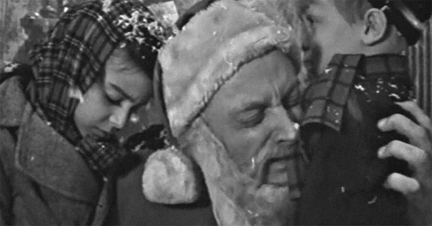
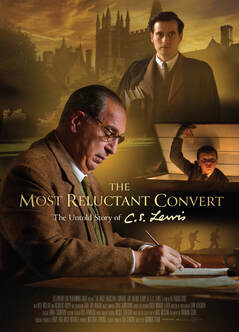
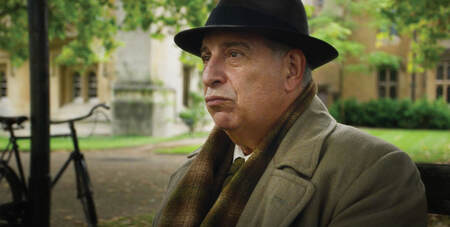

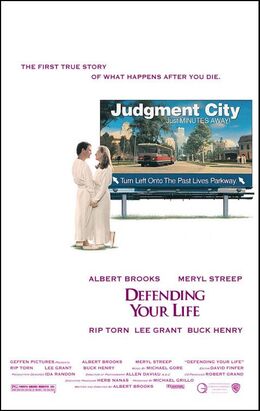
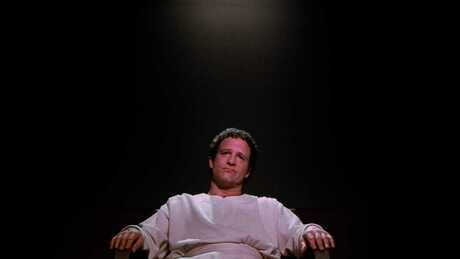


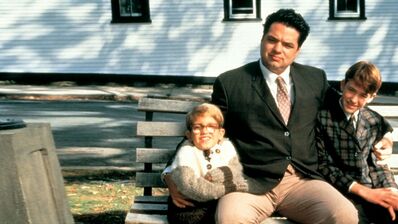





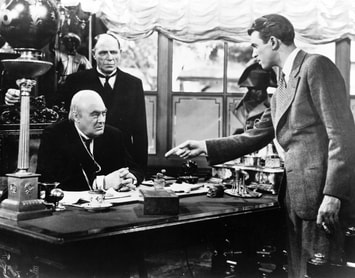

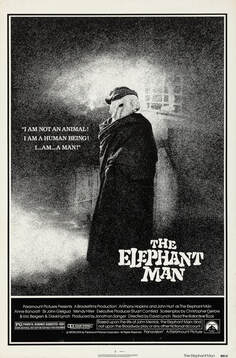
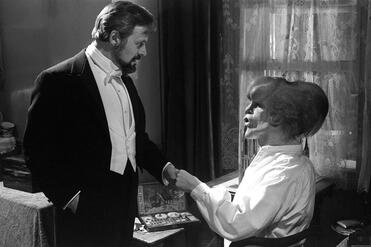
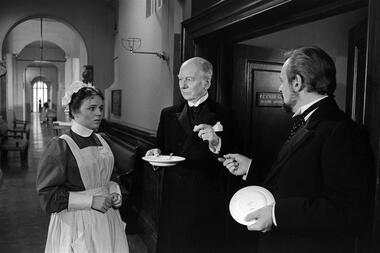
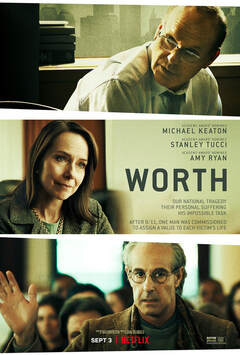
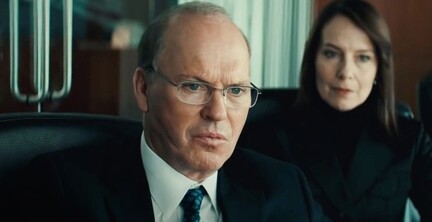






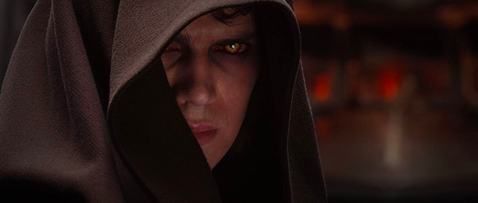
 RSS Feed
RSS Feed